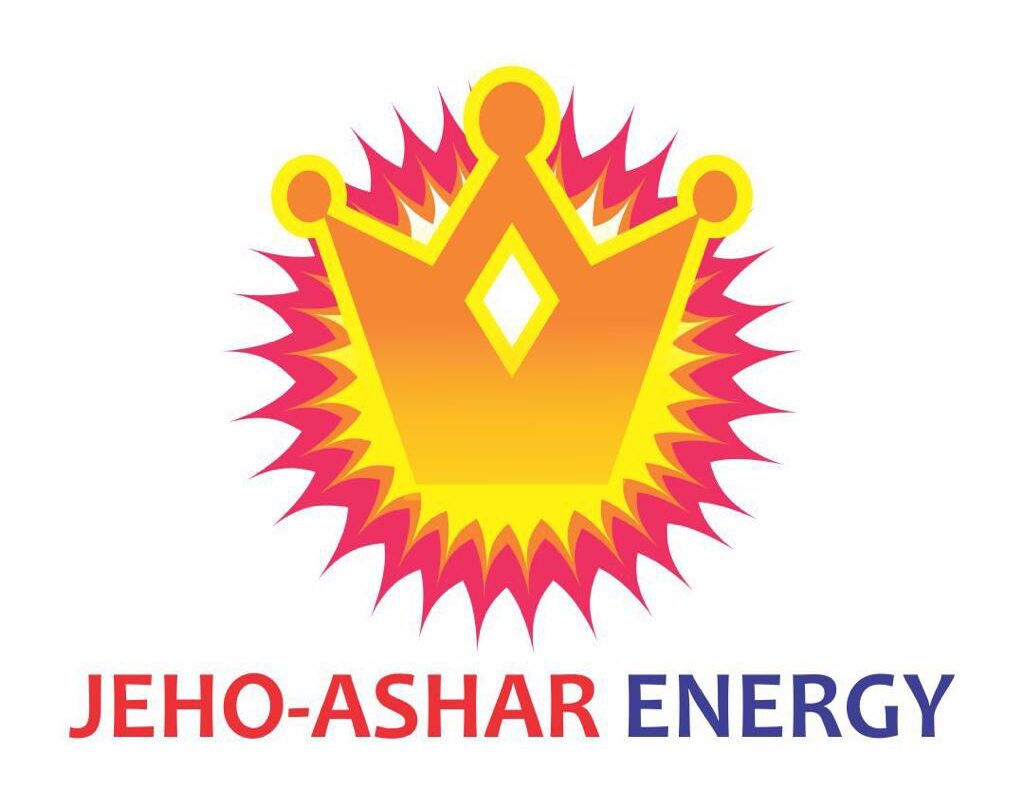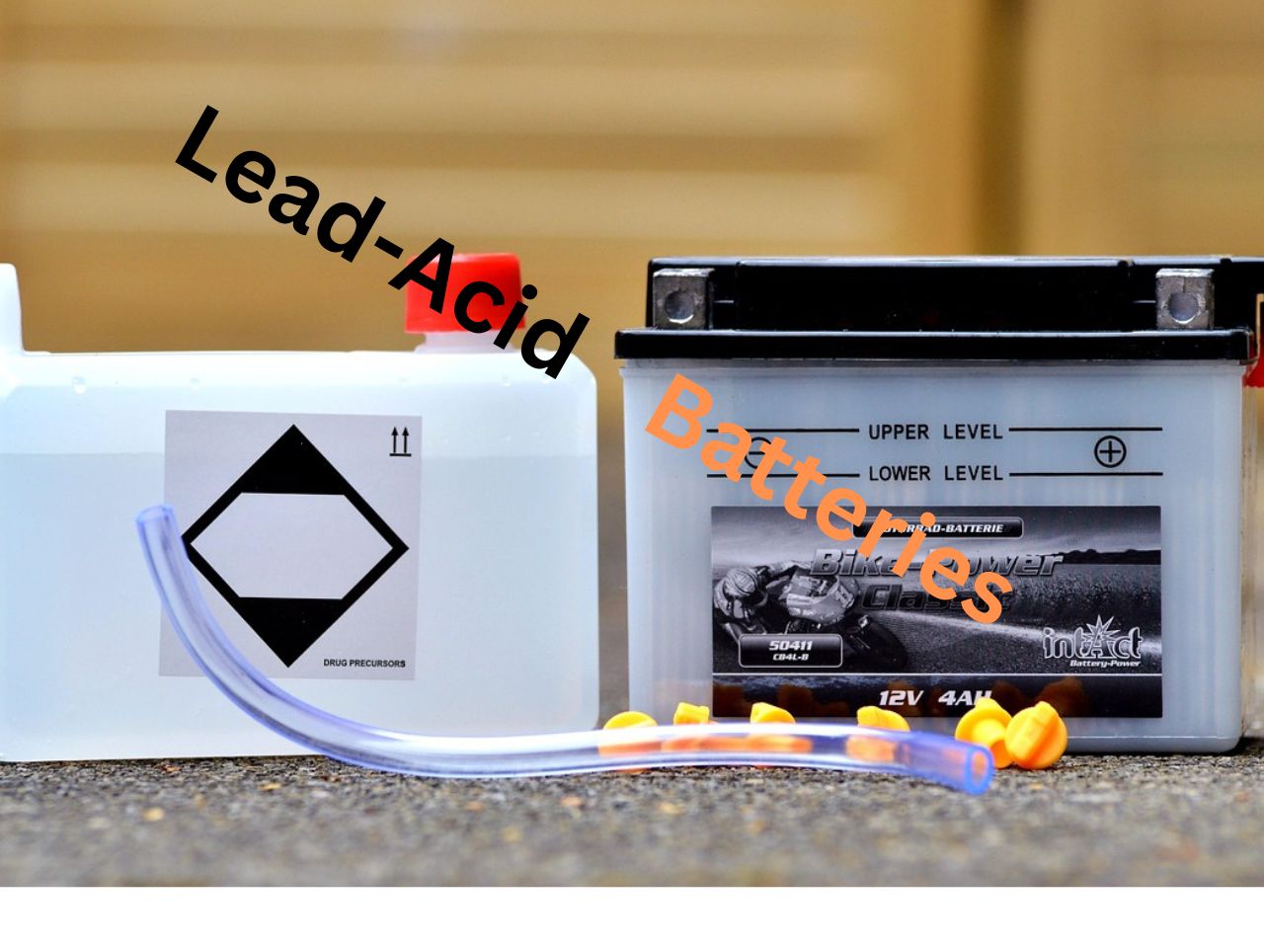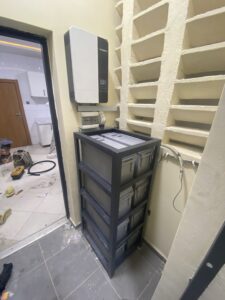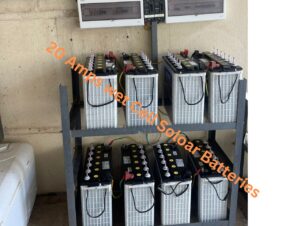Lead-acid batteries are one of the most widely used types of rechargeable batteries, especially in off-grid solar systems, backup power supplies, and electric vehicles. They have a long history, having been invented in 1859 by French engineer Gaston Planté. Despite being one of the oldest types of rechargeable batteries, lead-acid batteries remain popular today due to their affordability, reliability, and well-established technology.
Lead-acid batteries are typically used in applications that require reliable, high-power output over a longer period, including in solar energy systems, UPS (uninterruptible power supplies), automotive applications, and more.
How Lead-Acid Batteries Work
A lead-acid battery consists of several cells connected in series, each containing an anode, cathode, and electrolyte. The anode is made of lead (Pb), the cathode is made of lead dioxide (PbO₂), and the electrolyte is a diluted solution of sulfuric acid (H₂SO₄).
The chemical reactions that occur during discharge and charging of a lead-acid battery are as follows:
- Discharge (when the battery is being used):
- The lead (Pb) at the anode reacts with sulfuric acid, forming lead sulfate (PbSO₄) and releasing electrons.
- The lead dioxide (PbO₂) at the cathode also reacts with the sulfuric acid to form lead sulfate and release electrons.
- This movement of electrons between the anode and cathode generates the electrical energy that powers the connected devices.
- Charging (when the battery is being replenished):
- When an external current is applied, the lead sulfate on both the anode and cathode gets converted back into lead (Pb) at the anode and lead dioxide (PbO₂) at the cathode.
- This restores the battery’s capacity to store energy.
Types of Lead-Acid Batteries
There are two main types of lead-acid batteries:
- Flooded Lead-Acid (FLA) Batteries:
- These are the most traditional type of lead-acid batteries and are often referred to as wet cells.
- They contain a liquid electrolyte (sulfuric acid mixed with water) and require regular maintenance, including topping up the electrolyte levels.
- Advantages: Flooded lead-acid batteries are cost-effective, reliable, and have a long track record of performance.
- Disadvantages: They require regular maintenance and are not as tolerant to temperature extremes.
- Valve-Regulated Lead-Acid (VRLA) Batteries:
- VRLA batteries are sealed, which means they don’t require maintenance and are typically used in applications where maintenance is challenging.
- The two main types of VRLA batteries are:
- Absorbent Glass Mat (AGM) Batteries: The electrolyte is absorbed in fiberglass mats, making the battery spill-proof and highly durable.
- Gel Batteries: These use a gelified electrolyte, which offers better deep cycling capability but is more expensive than AGM.
- Advantages: No maintenance is required, they are more resistant to vibration, and they have a longer shelf life compared to flooded batteries.
- Disadvantages: Higher upfront cost and more sensitive to overcharging.
Advantages of Lead-Acid Batteries
- Affordability:
One of the biggest advantages of lead-acid batteries is their low initial cost compared to other types of batteries like lithium-ion. This makes them an attractive option for people looking for a cost-effective solution for energy storage, especially in off-grid solar applications. - Proven Technology:
Lead-acid batteries have been in use for over a century, and their performance, reliability, and technology are well understood. This makes them a trustworthy option for many industries, including automotive, energy storage, and backup power. - High Power Output:
Lead-acid batteries can provide high surge currents, which makes them ideal for applications that require a burst of power, such as starting an engine or providing backup power during a short power outage. - Widely Available:
Due to their long-standing use, lead-acid batteries are widely available around the world. There is a vast network of manufacturers, suppliers, and service providers, which ensures that they are easy to find and replace. - Recyclable:
Lead-acid batteries are highly recyclable, and the lead inside them can be reused, making them more environmentally friendly compared to other battery types when properly recycled.
Disadvantages of Lead-Acid Batteries
- Maintenance Requirements:
Traditional flooded lead-acid batteries require regular maintenance, including checking the electrolyte levels and topping them up with distilled water. Failure to maintain the correct electrolyte levels can shorten the battery’s lifespan. - Limited Lifespan:
Lead-acid batteries generally have a shorter lifespan compared to newer technologies like lithium-ion batteries. They typically last 3-5 years, though this can vary depending on usage and maintenance. - Lower Energy Efficiency:
Lead-acid batteries are less efficient than lithium-ion batteries in terms of energy storage and discharge. They also suffer from higher self-discharge rates, meaning they lose charge more quickly when not in use. - Heavy and Bulky:
Lead-acid batteries are generally heavier and bulkier than alternatives like lithium-ion batteries. This can make them difficult to install in certain applications where space is limited. - Vulnerability to Temperature Extremes:
Lead-acid batteries are more sensitive to temperature extremes. High temperatures can cause the electrolyte to evaporate and reduce the battery’s efficiency, while cold temperatures can reduce the battery’s overall capacity.
Applications of Lead-Acid Batteries
Lead-acid batteries are used in various applications, including:
- Off-Grid Solar Systems:
In off-grid solar systems, lead-acid batteries store excess energy generated during the day for use at night or during cloudy weather. Despite their relatively shorter lifespan, they are still widely used due to their affordability. - Automotive and Marine:
Lead-acid batteries are commonly used in vehicles, including cars, trucks, and boats, due to their ability to deliver high surge currents, especially during engine start-up. - UPS (Uninterruptible Power Supply):
Lead-acid batteries are used in UPS systems for providing backup power in case of electrical outages, ensuring that sensitive electronics like computers and servers remain operational during power failures. - Backup Power for Homes and Businesses:
Lead-acid batteries are commonly used as backup power sources in both residential and commercial applications, ensuring that power is available during grid outages.
Conclusion
Lead-acid batteries have been an integral part of energy storage systems for over 150 years. They offer a cost-effective, reliable, and widely available solution for many energy storage needs, including off-grid solar, automotive, and backup power systems. While they have some limitations, such as maintenance requirements and shorter lifespan compared to newer technologies, their advantages in terms of affordability, power output, and recyclability make them a great option for many users.
In choosing Jeho Ashar Energy as your provider for lead-acid battery systems, you are guaranteed to receive high-quality products, expert installation, and long-term support for all your energy needs. We ensure you get the best out of your lead-acid battery systems, optimizing performance and extending their lifespan through proper care and maintenance. With Jeho Ashar Energy, you are one step closer to energy efficiency and sustainability.
Jeho Ashar Energy and the Advantages of Choosing Us for Your Lead-Acid Battery Solutions
At Jeho Ashar Energy, we specialize in providing high-quality lead-acid battery systems tailored to your specific energy needs. Here’s why Jeho Ashar Energy is your ideal partner for lead-acid battery solutions:
1. Expert Guidance and Customization
We understand that every energy storage need is unique. Our team of experts at Jeho Ashar Energy takes the time to evaluate your requirements, whether you’re looking for a solution for an off-grid solar system, backup power, or an automotive application. We provide customized lead-acid battery solutions that are perfectly suited to your setup, ensuring optimal performance and efficiency.
2. High-Quality, Reliable Products
At Jeho Ashar Energy, we supply only the best-in-class lead-acid batteries from trusted manufacturers. Our lead-acid batteries are durable, highly reliable, and tested for performance, ensuring that they meet your energy needs for years to come. Whether you’re using flooded or valve-regulated lead-acid (VRLA) batteries, we ensure that you get the highest quality products with a proven track record.
3. Cost-Effective Solutions
Lead-acid batteries are well-known for their affordability, and Jeho Ashar Energy makes it even easier for you to access this cost-effective solution. We offer competitive pricing without compromising on quality. For customers on a budget or those with larger-scale energy needs, we provide the best value for your investment, making lead-acid batteries an economical choice for solar systems, backup power, and more.
4. Professional Installation and Maintenance Services
We don’t just sell lead-acid batteries — we provide end-to-end services to ensure that your battery system is set up for success. Our expert installation team ensures that your lead-acid batteries are correctly installed and integrated into your energy system. Additionally, we offer maintenance services, keeping your system in top shape by addressing regular upkeep such as water level checks and ensuring optimal charging conditions, extending the lifespan of your battery.
5. Sustainability and Recycling
Jeho Ashar Energy is committed to sustainability. Lead-acid batteries are 100% recyclable, and we take the responsibility of properly recycling old or used batteries to minimize environmental impact. By choosing Jeho Ashar Energy, you are not only investing in reliable energy storage but also contributing to a greener planet through eco-friendly recycling practices.
6. Long-Term Support and Warranty
We value our customers and ensure that they receive continuous support throughout the lifespan of their lead-acid battery system. At Jeho Ashar Energy, we provide extended warranties on our batteries, giving you peace of mind knowing that you’re covered in case of any issues. Additionally, our customer service team is always ready to assist with troubleshooting or questions related to battery performance and maintenance.
7. Tailored for Off-Grid and Backup Solutions
Whether you’re powering an off-grid solar system or need reliable backup power during grid failures, Jeho Ashar Energy is equipped to handle it all. Our lead-acid battery systems are perfect for both remote, off-grid installations and residential backup systems, offering dependable power even when the grid is down.
Conclusion
Choosing Jeho Ashar Energy for your lead-acid battery needs means opting for reliability, cost-effectiveness, and expert support. With our high-quality products, professional installation, and tailored solutions, we ensure that your energy storage system performs optimally and lasts longer. Trust Jeho Ashar Energy to be your energy partner and enjoy the best of what lead-acid batteries have to offer — all with exceptional service and long-term support.
Contact Jeho Ashar Energy today to explore the perfect lead-acid battery solution for your needs!



